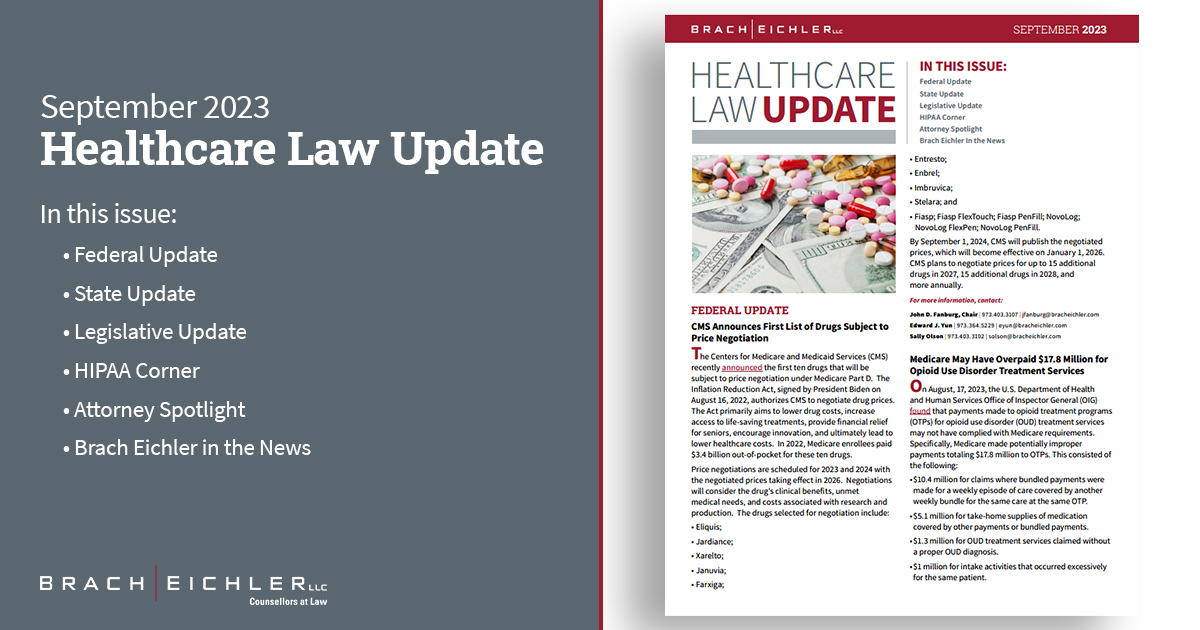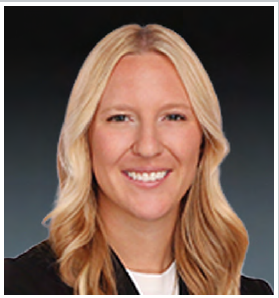
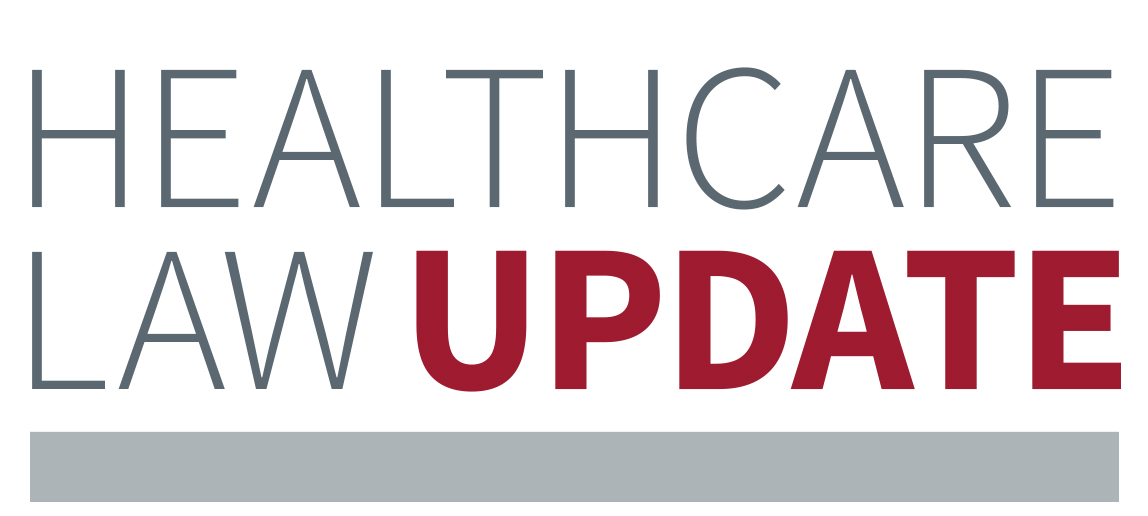

The Centers for Medicare and Medicaid Services (CMS) recently announced the first ten drugs that will be subject to price negotiation under Medicare Part D. The Inflation Reduction Act, signed by President Biden on August 16, 2022, authorizes CMS to negotiate drug prices. The Act primarily aims to lower drug costs, increase access to life-saving treatments, provide financial relief for seniors, encourage innovation, and ultimately lead to lower healthcare costs. In 2022, Medicare enrollees paid $3.4 billion out-of-pocket for these ten drugs.
Price negotiations are scheduled for 2023 and 2024 with the negotiated prices taking effect in 2026. Negotiations will consider the drug’s clinical benefits, unmet medical needs, and costs associated with research and production. The drugs selected for negotiation include:
• Eliquis;
• Jardiance;
• Xarelto;
• Januvia;
• Farxiga;
• Entresto;
• Enbrel;
• Imbruvica;
• Stelara; and
• Fiasp; Fiasp FlexTouch; Fiasp PenFill; NovoLog; NovoLog FlexPen; NovoLog PenFill.
By September 1, 2024, CMS will publish the negotiated prices, which will become effective on January 1, 2026. CMS plans to negotiate prices for up to 15 additional drugs in 2027, 15 additional drugs in 2028, and more annually.
For more information, contact:
John D. Fanburg, Chair | 973.403.3107 | jfanburg@bracheichler.com
Edward J. Yun | 973.364.5229 | eyun@bracheichler.com
Sally Olson | 973.403.3102 | solson@bracheichler.com
On August, 17, 2023, the U.S. Department of Health and Human Services Office of Inspector General (OIG) found that payments made to opioid treatment programs (OTPs) for opioid use disorder (OUD) treatment services may not have complied with Medicare requirements. Specifically, Medicare made potentially improper payments totaling $17.8 million to OTPs. This consisted of the following:
• $10.4 million for claims where bundled payments were made for a weekly episode of care covered by another weekly bundle for the same care at the same OTP.
• $5.1 million for take-home supplies of medication covered by other payments or bundled payments.
• $1.3 million for OUD treatment services claimed without a proper OUD diagnosis.
• $1 million for intake activities that occurred excessively for the same patient.

These payments occurred partly because the Centers for Medicare & Medicaid Services (CMS) did not instruct Medicare Administrative Contractors (MACs) to implement system edits to prevent OTPs from being paid for OUD treatment services already covered by other Medicare payments. The OIG made the following six recommendations to address the overpayments:
• Work with MACs and other contractors to review OTP claims for compliance.
• Instruct MACs to notify providers to identify, report, and return any overpayments.
• Advise MACs to implement edits in their claims processing systems to prevent dual payments for the same services.
• Revise billing guidance to specify to not bill codes for take-home supplies and edit claims processing systems to identify improper bills.
• Develop billing requirements to include OUD diagnosis codes on claims for treatment and diagnosis.
• Collaborate with MACs to provide education on billing intake activities.
For more information, contact:
Carol Grelecki | 973.403.3140 | cgrelecki@bracheichler.com
Edward J. Yun | 973.364.5229 | eyun@bracheichler.com
Sally Olson | 973.403.3102 | solson@bracheichler.com
On August 15, 2023, the U.S. Food and Drug Administration (FDA) issued final guidance entitled “Informed Consent: Guidance for Institutional Review Boards, Clinical Investigators, and Sponsors” which supersedes its prior guidance issued in September 1998 and finalizes its draft guidance from July 2014.
The guidance provides general guidance as well as a series of frequently asked questions regarding the FDA’s informed consent requirements for agency- regulated clinical investigations of drugs and medical devices. The updated guidance specifies the roles and responsibilities of Institutional Review Boards (IRBs), clinical investigators, and sponsors in ensuring proper informed consent. It also covers various other topics, including the content of consent forms, the prevention of coercion, managing new information during research, and the FDA’s review of criteria and issues involving diverse populations and electronic consent.
For more information, contact:
Joseph M. Gorrell | 973.403.3112 | jgorrell@bracheichler.com
Caroline J. Patterson | 973.403.3141 | cpatterson@bracheichler.com
Vanessa Coleman | 973.364.5208 | vcoleman@bracheichler.com
On October 6, 2022, President Biden directed the Department of Health and Human Services (HHS) to conduct a review of the classification of cannabis under the Controlled Substance Act (CSA). On August 29, 2023, HHS completed its review and recommended to the Drug Enforcement Agency (DEA) that the classification of cannabis be changed from a Schedule I to a Schedule III drug.
Schedule I is the most restrictive tier, reserved for drugs with no accepted medical use and a high potential for abuse, while Schedule III is reserved for drugs with a moderate to low potential for physical and psychological dependence. If the DEA were to follow HHS’ recommendation, cannabis would no longer be categorized with drugs such as heroin, LSD, peyote, and ecstasy. Instead, cannabis would be categorized with drugs like ketamine and anabolic steroids.
For more information, contact:
Riza I. Dagli | 973.403.3103 | rdagli@bracheichler.com
Richard Robins | 973.447.9663 | rrobins@bracheichler.com
Emily J. Harris | 973.364.5205 | eharris@bracheichler.com
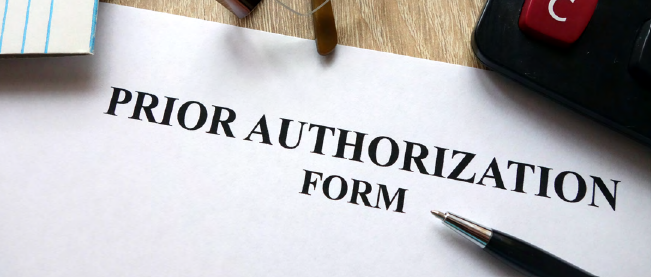
In a significant move aimed at simplifying the healthcare experience and improving patient outcomes, Cigna Healthcare has declared the elimination of prior authorization requirements for nearly 25 percent of medical services. This move entails the removal of over 600 prior authorization codes from their commercial plans, in addition to the 1,100 medical services that have already been freed from prior authorization since 2020.
Prior authorization requires physicians and facilities to obtain approval from a patient’s health plan before prescribing certain medication or conducting certain non-emergency medical procedures. The effective implementation of the announcement will result in less than 4 percent of medical services necessitating prior authorization for most Cigna Healthcare commercial policyholders. The insurer also plans to abolish prior authorization requirements for another 500 codes for its Medicare Advantage plans before the end of 2023.
In tandem with this development, the Centers for Medicare & Medicaid Services (CMS) is advocating for changes to prior authorization standards, urging health insurers to automate the prior authorization process and expedite decision-making. In a rule proposed in December 2022, CMS suggested that certain payers, including Medicare Advantage organizations, should adopt electronic prior authorization and provide decisions within 72 hours for urgent requests and 7 days for non-urgent requests. Additionally, Congress is contemplating legislation that would require Medicare Advantage payers to process prior authorization requests electronically and accelerate decisions for regularly approved items and services.
For more information, contact:
Isabelle Bibet-Kalinyak | 973.403.3131 | ibibetkalinyak@bracheichler.com
Edward Hilzenrath | 973.403.3114 | ehilzenrath@bracheichler.com
Harshita Rathore | 973.364.8393 | hrathore@bracheichler.com
The Department of Justice (DOJ) recently announced that Lincare Holdings Inc. (Lincare), a Florida medical equipment supplier, has agreed to a settlement under which it will pay $29 Million and reform its Medicare billing practices to resolve allegations that it violated the False Claims Act (FCA) by overbilling traditional Medicare, federally funded Medicare Advantage Plans offered by private insurers, and beneficiaries for oxygen equipment rentals. Lincare rents and services oxygen equipment, including stationary home and portable oxygen concentrators and gaseous and liquid oxygen equipment, to patients with respiratory issues in 49 states and is the sole Medicare provider of oxygen equipment in many rural communities. Medicare reimburses providers of oxygen equipment rentals for the cost of up to three years of lease payments or until Medicare has paid the full purchase price of the equipment, after which the provider is required to continue providing the oxygen equipment without reimbursement. According to the DOJ, Lincare submitted false claims by continuing to bill Medicare for oxygen equipment rentals to patients after Medicare had already provided reimbursement in amounts to cover the full purchase price of the devices.
As part of the settlement, Lincare has agreed to enter into a corporate integrity agreement with the Department of Health and Human Services and has agreed to retain the services of an independent reviewer to help reform its claims and billing practices and identify prior overpayments. Of the $29 Million settlement total, nearly $12.6 Million is restitution and more than $5.6 Million will be paid to the whistleblowers, two former Lincare employees who sued the company on behalf of the federal government in Washington federal court in 2021. The settlement also includes $362,000 to cover the whistleblowers’ costs and expenses. The case is believed to be the first successful FCA case against a healthcare supplier for overcharging the Medicare Advantage program for its services.
For more information, contact:
Keith Roberts | 973.364.5201 | kroberts@bracheichler.com
Jonathan J. Walzman | 973.403.3120 | jwalzman@bracheichler.com
Paul DeMartino | 973.364.5228 | pdemartino@bracheichler.com

On August 31, 2023, the New Jersey Department of Health approved the operation of a new mobile harm reduction center in Monmouth and Ocean Counties and pledged increased state funding toward overdose prevention. A harm reduction center is a community-based trauma setting for drug users. The purpose of the harm reduction center is to provide community members with a safe, non-stigmatizing space where they can access essential supplies like naloxone and sterile syringes, as well as safely dispose of syringes. Harm reduction centers also connect individuals to healthcare services and substance abuse resources.
For more information, contact:
Lani M. Dornfeld, CHPC | 973.403.3136 | ldornfeld@bracheichler.com
Caroline J. Patterson | 973.403.3141 | cpatterson@bracheichler.com
Emily J. Harris | 973.364.5205 | eharris@bracheichler.com
On August 30, 2023, a New Jersey appellate court held that a physician can be sued for failing to report information indicating that another physician was sexually assaulting female patients. The underlying case involved allegations against a pediatrician who was accused of neglecting to report information indicating inappropriate behavior by a pediatric gastroenterologist toward female patients who were treated by both physicians. A lower court dismissed the claim against the pediatrician, finding that the plaintiff should have presented an affidavit of merit by a qualified medical expert setting forth the standard of care applicable to the pediatrician regarding the pediatrician’s duty to the
patient under New Jersey’s child abuse, abandonment, cruelty, and neglect laws. The appellate court reversed the lower court’s ruling to dismiss the case, finding that under New Jersey law, any person, whether or not they are a physician, has a statutory duty to report suspected child abuse, and therefore the plaintiff was not required to submit an affidavit of merit, which would typically only be required to establish the applicable standard of care in professional negligence cases. The appellate court stressed that its reversal is limited to the affidavit of merit requirement, which was the lower court’s basis for dismissal in favor of the pediatrician, and the court expressed no opinion as to whether the plaintiff has a viable cause of action against the pediatrician based on the pediatrician’s purported failure to report the pediatric gastroenterologist.
For more information, contact:
Keith Roberts | 973.364.5201 | kroberts@bracheichler.com
Jonathan J. Walzman | 973.403.3120 | jwalzman@bracheichler.com
Harshita Rathore | 973.364.8393 | hrathore@bracheichler.com
On August 21, 2023, the New Jersey Department of Health proposed to readopt and amend licensing standards for home health agencies. The current rules were scheduled to expire on June 14, 2023, but this proposed readoption extends the expiration date until December 11, 2023. The proposal seeks to permit advanced practice nurses and physician assistants to prescribe treatment and to permit verbal and telephone orders. The proposed rule also revises tuberculosis testing requirements for home health agency personnel, consistent with the recommendations of the Centers for Disease Control and Prevention. Persons wishing to comment on the proposal must submit comments no later than October 20, 2023.
On September 1, 2023, Governor Murphy signed into legislation updates to the Safe Haven Infant Protection Act. The updated law permits a person who gives birth to a child at a licensed general hospital in New Jersey to safely surrender the child at the hospital. In addition, it further expands civil and criminal immunity to hospital employees. The updates take effect immediately.

On August 16, 2023, Governor Murphy signed into law Senate Bill 3929, which allows a general hospital and a satellite emergency department of a general hospital (each, a Facility) to detain an involuntarily committed patient for a period up to 144 hours (i.e., 6 days) under certain conditions. Previously, a Facility could detain such a patient for up to 72 hours (i.e., 3 days). Under the new law, the Facility may only detain such a person for more than 72 hours if the Facility obtains a temporary order permitting the continued detention of the person for up to 72 additional hours, as determined by a court. The office of the Public Defender is notified when a Facility submits such an emergency application and is appointed as counsel to represent the patient. A court may grant a temporary order if the Facility:
1. Exhausts all reasonable efforts to place the individual in a short-term care or psychiatric facility, or special psychiatric hospital, depending on which facility is appropriate for the person’s condition and is the least restrictive environment; and
2. Demonstrates there is a substantial likelihood that, by reason of a mental health condition, the person will be dangerous to the person’s own self or others based upon the certification of two psychiatrists who have examined the patient and deemed the patient is in need of involuntary commitment.
Many advocacy groups, such as the ACLU of New Jersey, signed a letter encouraging Governor Murphy to veto the new law because they believe it presents significant public health, human rights, and racial justice concerns. In a statement made by Governor Murphy upon signing the bill into law, Governor Murphy stated “The bill ensures a continuity of care for those in need of involuntary commitment while simultaneously pursing long-term policy efforts that may improve system capacity.”
For more information, contact:
John D. Fanburg, Chair | 973.403.3107 | jfanburg@bracheichler.com
Edward Hilzenrath | 973.403.3114 | ehilzenrath@bracheichler.com
Erika R. Marshall | 973.364.5236 | emarshall@bracheichler.com
Cynthia J. Liba | 973.403.3106 | cliba@bracheichler.com
On September 1, 2023, the U.S. Department of Health & Human Services, Office for Civil Rights and the U.S. Federal Trade Commission published joint letters that were sent in July to approximately 130 hospital systems and telehealth providers emphasizing the risks and concerns about the use of online tracking technologies, such as the Meta/Facebook pixel and Google Analytics, that can track a user’s online activities. OCRs concerns about such tracking technologies and HIPAA compliance were also highlighted in OCR guidance issued last year. Health care providers should take heed of these warnings and guidance before using any online tracking technologies to collect data about website and mobile app users, and particularly if a provider has any plans to use this data for marketing and other purposes.
The U.S. Department of Health & Human Services, Office of Inspector General (OIG) began enforcement of the information blocking penalties under the 21st Century Cures Act and OIG’s final rule. Information blocking is defined as a practice by a healthcare provider or developer of health IT that is likely to interfere with the access, exchange or use of electronic health information (EHI), except as required by law or specified in an information blocking exception. Because the OIG expects it will receive more information blocking complaints than it can investigate, it has advised that it will allocate its enforcement priorities to investigate cases that:
• resulted in, is causing, or has the potential to cause patient harm;
• significantly impacted a provider’s ability to care for patients;
• was of long duration;
• caused financial loss to Federal health care programs, or other government or private entities; or
• was performed with actual knowledge.
More information about the rule may be found here: OIG Information Blocking Final Rule and here: HealthIT.gov Website.
Reuters has reported that more than 600 organizations worldwide have suffered data compromise due to a breach of software maker Progress Software’s MOVEit file transfer application. “The tallies show that nearly 40 million people have been affected so far by the hack of Progress’ MOVEit Transfer file management program. Now the digital extortionists involved, a group named “cl0p”, have become increasingly aggressive about thrusting their data into the public domain.” Health care providers are among the thousands of companies affected.

The U.S. Department of Health & Human Services, Office of Information Security and the Health Sector Cybersecurity Coordination Center have issued joint guidance on Multi-Factor Authentication and Smishing. Multi-factor authentication (MFA) requires computer system users to go through multiple authentication steps in order to use the system or software within the system. MFA provides another layer
Smishing is a form of phishing in which an attacker uses a compelling text message to trick targeted recipients into clicking a link, which sends the attacker private information or downloads malicious programs to a smartphone or smart device.
of access protection over single-factor authentication. Smishing is a form of phishing in which an attacker uses a compelling text message to trick targeted recipients into clicking a link, which sends the attacker private information or downloads malicious programs to a smartphone or smart device. The guidance is intended to assist health care organizations in addressing the top five cyber threats in health care: (i) phishing/smishing, (ii) ransomware attacks, (iii) data breaches, (iv) distributed denial of service (DDoS) attack, and (v) info-stealing malware.
If you need assistance with your HIPAA compliance program, an OCR investigation, or a data breach incident, please contact:
Lani M. Dornfeld, CHPC | 973.403.3136 | ldornfeld@bracheichler.com
Get to know the faces and stories of the people behind the articles in each issue. This month, we invite you to meet Member Keith Roberts and Associate Sally Olson.
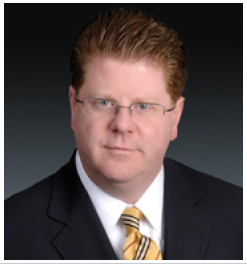
What advice can you share with a client who might need your services?
Compliance. Clients often fail to pay adequate attention to compliance issues within their practices, whether its coding audits or quality control of services provided. Unfortunately, practitioners today fail to recognize the importance of even a most basic compliance program.
What are some best practices for healthcare clients?
Focus on quality and technology. I think it’s important for medical practices today to make wise decisions by investing adequate resources in technology. Starting with patient work flow being organized at the front desk to maximize opportunity with appropriate communication and follow up is critical to success. High quality care is also vital. This means a medical record system that facilitates notes being thoroughly and contemporaneously created with the delivery of patient care, not subsequently. Today, available technology such as a tablet in the palm of your hand facilitates ease of creating accurate patient notes during the exam.
What advice can you share with a client who might need your services?
Effective collaboration is essential for success in this highly regulated industry. Sharing all relevant information, documents, and concerns with us ensures we’re both on the same page. Similarly, do not be afraid to ask questions or seek clarification about legal issues, processes, and strategies. We’re happy to explain complex concepts in understandable terms.
What are some best practices for healthcare clients?
Healthcare is a constantly evolving field. Regularly review and update contracts, agreements, and policies to ensure they remain compliant with laws and regulations. In addition, stay informed about recent trends and developments through ongoing education as they may greatly impact your practice or organization.

On September 13, Healthcare Law Member Isabelle Bibet-Kalinyak, Esq. was recognized by NJBIZ as a “2023 Best 50 Women in Business” honoree. This program recognizes 50 women who have made a significant impact on New Jersey business and the community at large. Congratulations!!
On September 13, New Jersey Law Journal profiled Healthcare Law Member Joseph Gorrell, Esq. for his selection as a distinguished “Mentor of the Year” honoree. Congratulations!!
On September 11, Brach Eichler welcomed Corporate Healthcare transactional Member Joseph Ferino. ROI-NJ reports Mr. Ferino brings a combined breadth of experience in corporate, finance and technology transactions across the health care industry.
On September 1, Healthcare Law Member Lani Dornfeld opined in Relias Media in an article entitled “Prying Eyes Put EDs at High Risk for HIPAA Violations.”
Join us for the 12th Annual New Jersey Healthcare Market Review, September 28-29, 2023 at the Borgata Hotel Casino & Spa, Atlantic City, NJ! Connect with over 200 attendees comprised of hospital and ASC executives and stakeholders, physicians, practice owners/managers, and healthcare administrators. During this two-day event, industry experts will discuss timely topics and trends in the healthcare and legal space ranging from legislative issues to operating and business strategies for greater profitability. To learn more and register, please visit www.njhmr.com. For questions or additional information, please reach out to Lori Maltzman at lmaltzman@bracheichler.com.

Attorney Advertising: This publication is designed to provide Brach Eichler LLC clients and
contacts with information they can use to more effectively manage their businesses. The contents
of this publication are for informational purposes only. Neither this publication nor the lawyers who
authored it are rendering legal or other professional advice or opinions on specific facts or matters.
Brach Eichler LLC assumes no liability in connection with the use of this publication.

Shannon Carroll | 973.403.3126 | scarroll@bracheichler.com
Riza I. Dagli | 973.403.3103 | rdagli@bracheichler.com
Lani M. Dornfeld | 973.403.3136 | ldornfeld@bracheichler.com
John D. Fanburg, Chair | 973.403.3107 | jfanburg@bracheichler.com
Joseph M. Gorrell | 973.403.3112 | jgorrell@bracheichler.com
Carol Grelecki | 973.403.3140 | cgrelecki@bracheichler.com
Caroline J. Patterson | 973.403.3141 | cpatterson@bracheichler.com
Keith J. Roberts | 973.364.5201 | kroberts@bracheichler.com
Richard B. Robins | 973.447.9663 | rrobins@bracheichler.com
Jonathan J. Walzman | 973.403.3120 | jwalzman@bracheichler.com
Edward J. Yun | 973.364.5229 | eyun@bracheichler.com
Paul J. DeMartino, Jr. | 973.364.5228 | pdemartino@bracheichler.com
Emily J. Harris | 973.364.5205 | eharris@bracheichler.com
Cynthia J. Liba | 973.403.3106 | cliba@bracheichler.com
Sally Olson | 973.403.3102 | solson@bracheichler.com
Harshita Rathore | 973.364.8393 | hrathore@bracheichler.com
Roseland, NJ | New York, NY | West Palm Beach, FL | www.bracheichler.com | 973.228.5700


